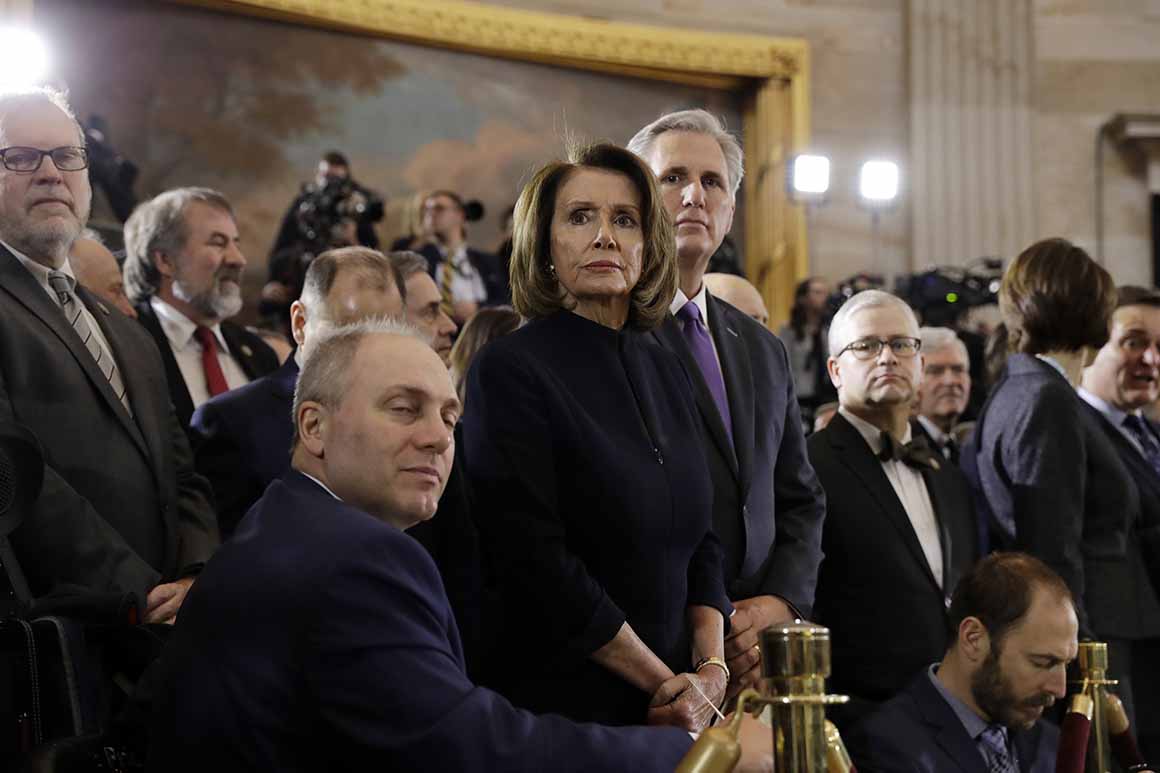
The contours of a deal started to come together in recent days, even as Congress has been grappling with how to respond to the coronavirus outbreak.
And after meeting with Attorney General William Barr in the Capitol Monday night, House Republicans sent the Democrats a counteroffer Tuesday morning that included a list of proposed changes. McCarthy huddled with his Democratic counterpart, House Majority Leader Steny Hoyer (Md.), to discuss the agreement on the floor Tuesday afternoon.
“They’re just finishing up. I feel like we’re there,” McCarthy said outside the House chamber. “I just talked with Steny and staff. I think we’re about there. Just have to confirm everywhere.”
The House Rules Committee will prepare the bill for floor debate Tuesday evening, with a vote expected sometime this week.
The three expiring FISA provisions include “roving wiretap” authority for federal intelligence agents to surveil suspects who change phones, the power to monitor people acting as “lone wolves” — inspired by, but not necessarily at the direction of, foreign powers — and the ability to access business records and email metadata of suspects.
But the agreement could be thwarted by Senate Republicans or President Donald Trump, who has demanded significant changes to the surveillance programs. Senate Majority Leader Mitch McConnell (R-Ky.) has sought to protect the expiring FISA provisions.
The FISA debate has been a tricky endeavor for both parties, with progressives and libertarians insisting on long-standing demands for civil liberties protections, while conservatives have aligned with Trump, who has accused intelligence agencies of abusing the surveillance authorities to monitor his 2016 campaign.
Trump told GOP members during a White House meeting last week that he wouldn’t sign a clean extension of the law — an idea that Barr had pitched during a lunch meeting with the Senate GOP days earlier. Instead, the president encouraged lawmakers to strike a long-term agreement. “You all work out a bipartisan deal and come back to me and I’ll sign it,” Trump said, according to a source in the room.
House Republicans believe Trump will back the bipartisan deal they’ve reached, especially since some of the president’s top conservative allies were involved in the Capitol Hill negotiations, including Reps. Jim Jordan of Ohio and Mark Meadows of North Carolina, his incoming chief of staff.
And Trump’s support could help smooth the bill’s path in the Senate, where members have not come up with their own FISA solution but are eager to prevent the surveillance powers from lapsing.
Senate Majority Whip John Thune (R-S.D.) said Republicans want to move a FISA bill this week, but it will depend “on how many procedural roadblocks some of our members might want to throw up.”
“I think it’s important we not let those authorities lapse. That would have obviously been a last resort and worst-case scenario, but we’ve been hoping all along they would get a deal. And evidently they have,” Thune said, referring to the House negotiations.
Sen. Mike Lee of Utah, one of the most vocal GOP critics of the law, signaled he may be opposed to the House agreement but cautioned he hadn’t seen the final text.
“Based on earlier drafts of it, I don’t like it at all,“ Lee said. „But I haven’t seen this one yet.“
And libertarian Sen. Rand Paul (R-Ky.), who has also been critical of the law, dismissed the deal as “weak sauce diluted” and a “big disappointment.”
Andrew Desiderio contributed to this story.
Source: politico.com
See more here: news365.stream






